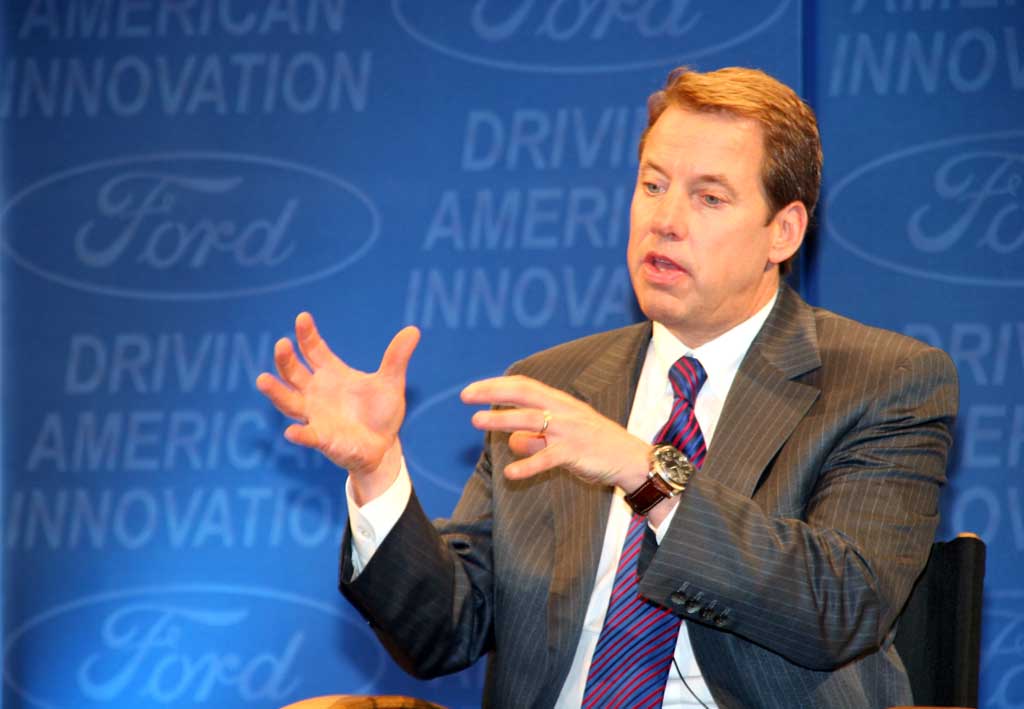Auto executives know how to get U.S. drivers to save a whole lot more gasoline: Raise the price of gas, to at least $4 a gallon.
That was the message at the recent Reuters Autos Summit in Detroit this week. The simplest way to get U.S. drivers into cars with higher gas mileage is economic: Make it cost more.
Prius popular at $4/gallon
Washington has awarded more than $8 billion of Advanced Vehicle Technology loans to help carmakers build more fuel efficient vehicles, but most expensive gasoline would do far more to cut consumption, said the executives.

Gas At $4.89
U.S. car buyers historically flock to the highest-mileage cars--the 2010 Toyota Prius hybrid, for example, at 50 miles per gallon--only when gasoline is expensive.
Gasoline at $4 per gallon during the price spike of 2007-2008 changed car-buying patterns more quickly than years of government mileage standards. But when gas fell back below $2.50, buyers reverted to form, and sales of larger vehicles with more powerful engines climbed back up.
Prices rise and fall, consumers waver
"The U.S. allows the price of gasoline to go back and forth across this line where the consumers don't care about fuel efficiency and where consumers do care about fuel efficiency," said the always outspoken Mike Jackson, chief executive of mega-dealer AutoNation.
And he was joined by former General Motors board member Jerry York, among others. "Unless gas is $3.50 or $4 a gallon, consumers are not going to want to buy those cars," York told Reuters.

Bill Ford 2006
Here at GreenCarReports.com, we've covered the idea of gas taxes before. Besides Jackson and York, other supporters include Ford chairman Bill Ford and Ford CEO Alan Mullaly.
Whether gasoline gets more expensive will be one of three points to watch in Obama's new mileage and emissions regulations and in any comprehensive energy policy bills introduced in Congress.
No gas tax at all?
Meanwhile, current gas tax revenues aren't enough to meet the huge road maintenance deficit. Some legislators are suggesting gas taxes go up now with higher CAFE mileage standards.
Extended-range electric cars like the 2011 Chevrolet Volt will only use gasoline if they travel more than 40 miles a day. Even worse, the 2012 Nissan Leaf electric car uses no gasoline at all--hence its owner pays no gas tax.
Where will the revenue, and the incentives to buy more efficient cars, come from?
Good question.













